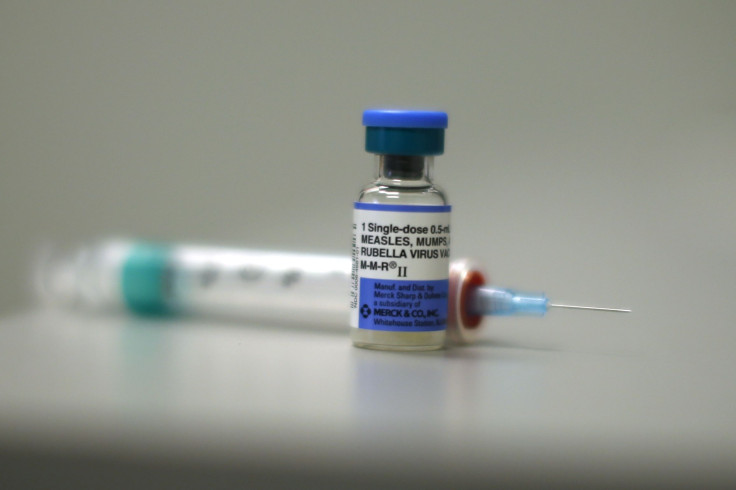Amid Measles Outbreak, 80% Of Americans Say Parents Should Be Required To Immunize Their Kids

The latest measles outbreak, stemming from Disneyland in California, has given rise to scores of health care providers urging parents to vaccinate their kids. These parents have been equally as loud despite being in the minority; a recent CNN/ORC International poll found eight out of 10 Americans support vaccination requirements for children before entering public school or day care.
Taken between Feb. 12 and 15, the poll included 1,027 adults, and found that 78 percent of Americans believe parents should be required to vaccinate their kids for measles, mumps, and rubella or polio (MMR) if they’re healthy enough. Fifty-eight percent of adults also said an unvaccinated child shouldn’t be allowed to attend public school, while 61 percent said they shouldn’t be allowed to attend daycare. However, the majority was fine with these kids attending a private school (51 percent).
Breaking the findings down even further, the poll found older Americans (50 and up) were more supportive of vaccinations than under-50s, with 84 percent saying so compared to 72 percent, respectively. Women were also more likely to agree with vaccinating kids compared to men (81 percent vs. 75 percent) and 70 percent of parents with children under 18 supported the requirement. Thirty-nine percent of respondents said it was likely the virus would spread to their local communities within the next few weeks.
As of Feb. 20, the measles outbreak that began in Disneyland — likely spreading from an unvaccinated person who traveled internationally — had spread to 133 people in seven states. California, however, has been hit the hardest, with 117 people becoming ill, according to the Centers for Disease Control and Prevention (CDC). Meanwhile, another two much smaller outbreaks are ongoing in Illinois and Nevada.
The CDC says the current outbreaks, which amount to a total of 154 cases, are the greatest number of cases to hit the U.S. since measles elimination in 2000. It’s been driven mostly by children who haven’t been vaccinated, especially in California, where large chunks of the state’s populations have used personal belief exemptions to get past vaccine requirements. All told, twice as many parents filed for exemptions between 2013 and 2014 than in 2007 and 2008, according to a report from The Los Angeles Times, with up to 20 percent of some counties — especially in Northern California — bypassing the vaccines.
Despite overwhelming evidence to the contrary, many of these parents still believe the MMR vaccine can cause severe side effects and even lead to the development of autism. But side effects of that magnitude are rare, and two doses of the vaccine are considered to be 97 percent effective. So while there may be a child here and there who falls ill from the vaccine, the majority become protected.
Keeping vaccination rates high is of the utmost importance in keeping the rest of us protected — not only those who aren’t vaccinated or too young for one, but also those who are, as the virus may sometimes get past those safeguards. Once vaccination rates dip below a certain rate, of about 92 percent, the number of people immunized against the virus becomes too low to prevent its spread, which is called herd immunity. If that were to happen, then those respondents who weren’t so sure it would strike their community might caught off-guard.
Published by Medicaldaily.com



























